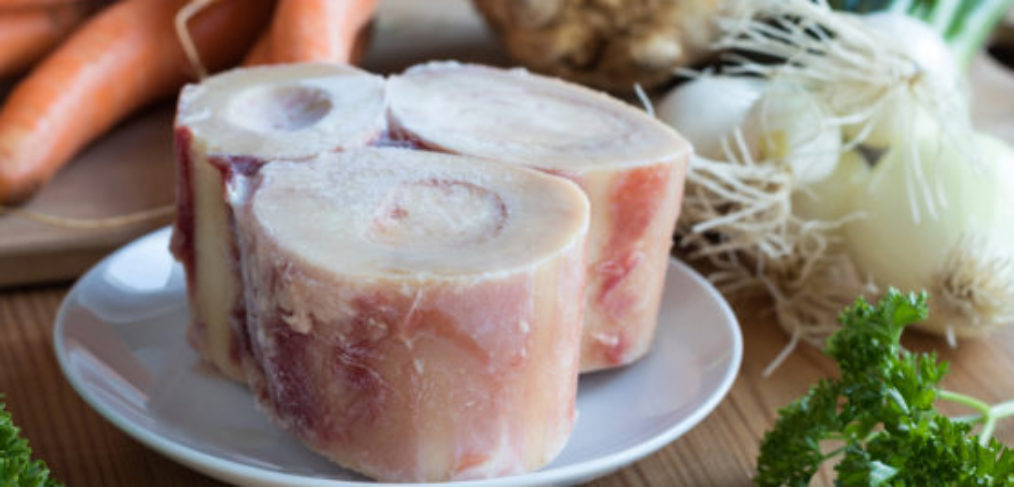Top Five Foods for Optimal Gut Health

You are what you eat!
You’ve heard it before, but studies (1) now are showing it’s true down to the microscopic level.
90% of our cells are nonhuman, microbial cells. And since our diet influences our microbes, it’s true: We really are what we eat.
The good news is that you can cultivate a new microbiota, formerly known as gut flora, in just 24 hours by changing what you eat.
So what, exactly, should we be eating?
It won’t surprise you to read a friendly reminder that our diets should be rich in a variety of in season, organic, locally sourced veggies.
Veggies that are nutrient dense and rich in prebiotics (such as Jerusalem artichokes), sulfur (all the lovely crucifers) and healthy micro organisms (like kim chi), are undoubtedly an essential part of any properly designed gut health diet.
But veggies won’t do it alone.
In fact, a vegan or vegetarian diet can actually make things worse.
If you’re someone like me who tried many different approaches to ‘healthy’ eating as part of a journey to figuring out mysterious gut issues and part of your path included a stop following a vegan diet along the way, you may have back tracked a little… or a lot.
While a mindfully developed vegan diet is rich in abundant, varied veggies, all too often the protein sources can cause trouble in the gut.
Soy is high in phytic acid, a digestion inhibitor that binds to certain vital minerals (specifically zinc, iron, and calcium) and prevents their absorption, which can lead to mineral deficiencies. In addition, undigested food particles sitting in your gut create gut infections and irritate your gut lining. A compromised gut lining (or leaky gut) is a determining factor in the development of autoimmune disease (2).
So what else should we be eating in addition to those amazing, abundant veggies?
Below are my top five food for optimal gut health:
Guts – Grass- fed liver in particular is nutritious than any other food. A 3.5-ounce serving of cooked beef or chicken liver supplies more than your daily requirement of vitamin B12 and large amounts of other B vitamins. It is also rich in protein, zinc, copper, iron, and vitamin C (3).
Fermented Foods Studies (4) have found that foods containing probiotics can improve bacteria balance in the gut and boost overall immune function. Eating a variety of probiotic-containing foods most days of the week is enough to regulate digestion and relieve mild and/or occasional problems while supporting gut health. Kim Chi is a great choice.
Bone Broth Rich in minerals that support the immune system and healing compounds like collagen, glutamine, glycine and proline, the collagen in bone broth heals your gut lining and reduces intestinal inflammation. (5) It’s easier to make than you might, think; check out my free recipe and take DIY approach!
Grass Fed Meats Switching from eating factory farmed meat to grass-fed meats, such as beef, chicken, turkey and bison, will help increase your omega-3 intake and reduce the inflammation associated with leaky gut (6).
Fish Oil Wild fish and fish oil (especially cod liver oil) are another excellent source of anti-inflammatory omega-3 essential fatty acids. Fish also contains vitamin D— and although it’s not entirely clear how, vitamin D deficiency has been linked to leaky gut (7).
Remember, gut health is not just about avoiding stomach aches and irregular digestion; the gut biome, the bacteria living in your intestines, is crucial to your health. The overuse of antibiotics, diets high in processed foods, and foods containing histamines are your gut biome’s worst nightmare.
When your gut bacteria get thrown off, you can develop increased inflammation, congestion, hives, migraines, and fatigue — just to name a few symptoms (8).
It’s in your best interest to get your gut healthy now, even if you’re not feeling ill.
Better to be proactive than have to double back and correct once things start going down hill.
Just one more reason to eat food, and to not eat things that are not food!
(1) “Seven Foods to Supercharge Your Gut Bacteria.” The Physicians Committee for Responsible Medicine, 20 June 2017
(2) MD, Amy Myers. “5 Reasons Soy Is Not a Health Food.” Amy Myers MD, 7 Nov. 2017
(3) “How Nutritious Is Liver?” Berkeley Wellness
(4) “Seven Foods to Supercharge Your Gut Bacteria.” The Physicians Committee for Responsible Medicine, 20 June 2017
(5) Axe, Dr. Josh. “Bone Broth Benefits for Digestion, Arthritis, and Cellulite.” Dr. Axe Food + Medicine, 9 Jan. 2018
(6) Simopoulos, A P. “The Importance of the Ratio of Omega-6/Omega-3 Essential Fatty Acids.” Biomedicine & Pharmacotherapy = Biomedecine & Pharmacotherapie., U.S. National Library of Medicine.
(7) “The Best and Worst Foods for Healing Leaky Gut (Infographic & PDF).” The Kettle & Fire Blog, 25 Oct. 2017
(8) Asprey, Dave. “3 Tips for a Healthy Gut Biome (Hint: Yogurt Is Not One of Them).” Dave Asprey, The Mission, 22 Sept. 2015





